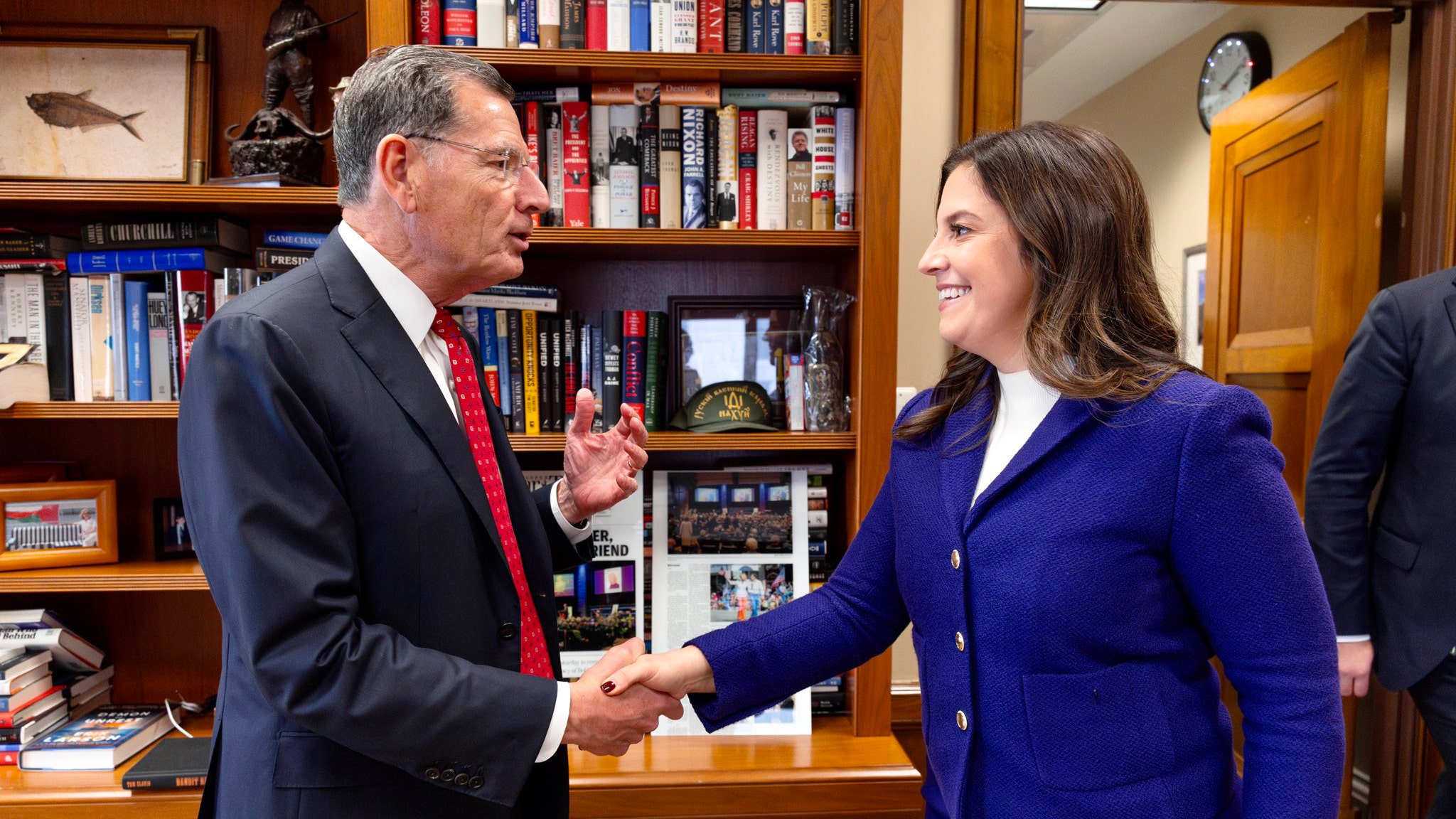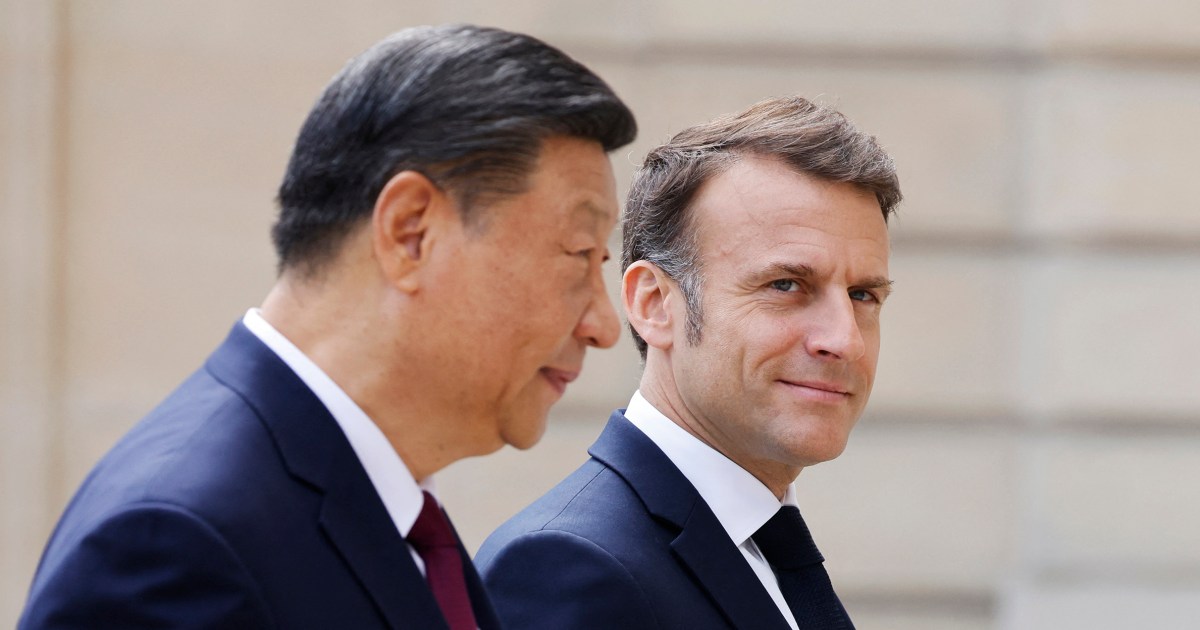NEW YORK — The Commerce Department said Monday it’s seeking a ban on the sale of connected and autonomous vehicles in the U.S. that are equipped with Chinese and Russian software and hardware with the stated goal of protecting national security and U.S. drivers.
While there is minimal Chinese and Russian software deployed in the U.S., the issue is more complicated for hardware. There are more Chinese parts on U.S. vehicles than software, and software can be changed much faster than physical parts.
“Many of these technologies collect large volumes of information on drivers,” Jake Sullivan, President Joe Biden’s national security adviser, told reporters. They also connect constantly with personal devices, with other cars, with U.S. critical infrastructure and with the original manufacturers of vehicles and components.
Replacing hardware could also require complex engineering and assembly line changes. That’s why Commerce officials said the prohibitions on the software would take effect for the 2027 model year and the prohibitions on hardware would take effect for the 2030 model year, or Jan. 1, 2029, for units without a model year.
The measure announced Monday is proactive but critical, the agency said, given that all the bells and whistles in cars like microphones, cameras, GPS tracking and Bluetooth technology could make Americans more vulnerable to bad actors and potentially expose personal information, from the home addresses of drivers, to where their children go to school.
“We’ve already seen ample evidence of (China) pre-positioning malware on our critical infrastructure for the purpose of disruption and sabotage, and with potentially millions of vehicles on the road, each with 10- to 15-year lifespans, the risk of disruption and sabotage increases dramatically,” said National Security Adviser Jake Sullivan.
In extreme situations, a foreign adversary could shut down or take simultaneous control of multiple vehicles operating in the United States, causing crashes and blocking roads, U.S. Secretary of Commerce Gina Raimondo told reporters on a call Sunday.
“This is not about trade or economic advantage,” Raimondo said. “This is a strictly national security action. The good news is right now, we don’t have many Chinese or Russian cars on our roads.”
Raimondo said Europe and other regions in the world where Chinese vehicles have become commonplace very quickly should serve as “a cautionary tale” for the U.S.
Security concerns around the extensive software-driven functions in Chinese vehicles have arisen in Europe, where Chinese electric cars have rapidly gained market share.
Imported Chinese-owned vehicle brands had 7.6% of the market for electric vehicles in Europe in 2023, more than doubling from 2.9% in 2020, according to the European Automobile Manufacturers’ Association. The share of all electric vehicles imported from China is still higher when Western-owned brands manufactured in China, such as BMW and Tesla, are included: some 21.7%.
“Who controls these data flows and software updates is a far from trivial question, the answers to which encroach on matters of national security, cybersecurity and individual privacy,” Janka Oertel, director of the Asia program at the European Council on Foreign Relations, wrote on the council’s website.
Vehicles are now “mobility platforms” that monitor driver and passenger behavior and track their surroundings.
A senior administration official said that it is clear from terms of service contracts included with the technology that data from vehicles ends up in China.
AHEAD OF THE CURVE
Raimondo said that the U.S. won’t wait until its roads are populated with Chinese or Russian cars.
“We’re issuing a proposed rule to address these new national security threats before suppliers, automakers and car components linked to China or Russia become commonplace and widespread in the U.S. automotive sector,” Raimondo said.
It is difficult to know when China could reach that level of saturation, a senior administration official said, but the Commerce Department says China hopes to enter the U.S. market and several Chinese companies have already announced plans to enter the automotive software space.
The Commerce Department added Russia to the regulations since the country is trying to “breathe new life into its auto industry,” senior administration officials said on the call.
The proposed rule would prohibit the import and sale of vehicles with Russia and China-manufactured software and hardware that would allow the vehicle to communicate externally through Bluetooth, cellular, satellite or Wi-Fi modules. It would also prohibit the sale or import of software components made in Russia or the People’s Republic of China that collectively allow a highly autonomous vehicle to operate without a driver behind the wheel. The ban would include vehicles made in the U.S. using Chinese and Russian technology.
The proposed rule would apply to all highway vehicles, but would exclude those not used on public roads, such as agricultural or mining vehicles.
U.S. automakers said they share the government’s national security goal, but at present there is little connected vehicle hardware or software coming to the U.S. supply chain from China.
SUPPLY CHAIN COMPLICATIONS
Yet the Alliance for Automotive Innovation, a large industry group, said the new rules will make some automakers scramble for new parts suppliers. “You can’t just flip a switch and change the world’s most complex supply chain overnight,” said John Bozzella, the alliance’s chief executive officer, in a statement.
The lead time in the new rules will be long enough for some automakers to make the changes, “but may be too short for others,” Bozzella said.
Commerce officials met with all the major auto companies around the world while it drafted the proposed rule to better understand supply chain networks, according to senior administration officials, and also met with a variety of industry associations.
The Commerce Department is inviting public comments, which are due 30 days after publication of a rule before it’s finalized. That should happen by the end of the Biden Administration.
The new rule follows steps taken earlier this month by the Biden administration to crack down on cheap products sold out of China, including electric vehicles, expanding a push to reduce U.S. dependence on China and bolster homegrown industry.
Richard Fontaine, the chief executive officer of the Center for a New American Security who is an author of the recently published book “Lost Decade: The U.S. Pivot to Asia and the Rise of Chinese Power,” said in an interview that the move was an expansion of the U.S. effort to create a “high fence around a small yard” of strategically important goods.
“On China tech, it’s clear that the ‘small yard’ is growing in size and will continue no matter who wins the election in November,” Fontaine said. “Policymakers of all stripes are increasingly worried about the national security risks that attend Chinese technology, particularly when they imagine what might happen in a confrontation.”
Information for this article was contributed by Anne D’Innocenzio, David McHugh and Tom Krisher of the Associated Press; David E. Sanger, Madeleine Ngo and Jack Ewing of The New York Times; and Grant Schwab of The Detroit News (TNS).










